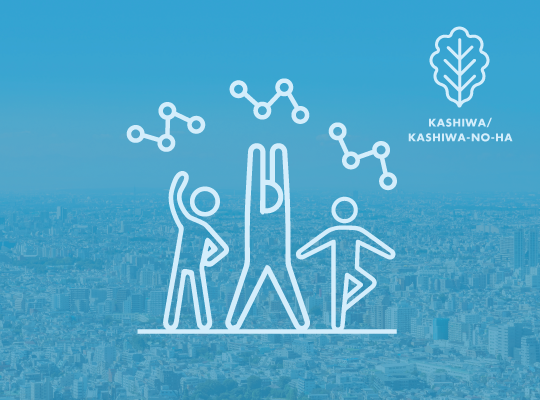
We have thus far been engaged in research on the “design of next-generation social security systems and next-generation community-based integrated care systems” aimed at realizing the proposition that everyone can live at home until the end in good physical and mental health.
In solving this target problem, the purpose is “to realize happy, generation-inclusive, symbiotic, and ‘co-creative’ communities by enhancing social participation and life-long independence, in a super-aged society.” The two main points of this research are as follows: (1) further revitalization of the comprehensive life support industry based on evidence aimed at health promotion and frailty prevention from an early stage, and (2) policy making for medical care, long-term nursing care, and social participation based on quantitative evaluation towards a sustainable social security system.
In particular, (1), “enhancing the system for prevention of daily dysfunctions from an early stage by utilizing medical care and long-term nursing care databases such as the National Health Insurance Database (‘Kokuho Database’ (KDB))” is being studied, along with studies on artificial intelligence (AI) to predict the risk of frailty. There is also the reality that the same level of physical exercise is recommended despite large individual differences among the elderly people living in the community. Accordingly, we are studying a “personalized frailty prevention method based on evidence matching with the needs of each resident,” in the views of AI outputs and medical expertise. Moreover, in (2), we are studying the approach of “policy proposals and evaluations based on simulation utilizing database on the elderly people in the community” towards estimating suitable “medical and long-term nursing care expenses for the elderly people per GDP.” In particular, applying Future Elderly Model (FEM), we are developing a simulator capable of predicting demographics for decades to come in terms of 11 chronic diseases (diabetes, heart disease, cancer etc.) and three states (activity of daily living level, locomotion level, and cognition level). Through the development, we would like to establish not only measures to prevent diseases, but also a method to predict the effects of tax systems and employment systems concerning the working and social participation of elderly people.
In this research, we plan to conduct verification for (1) and (2) described above, in the Kashiwa city/Kashiwa-no-ha project.
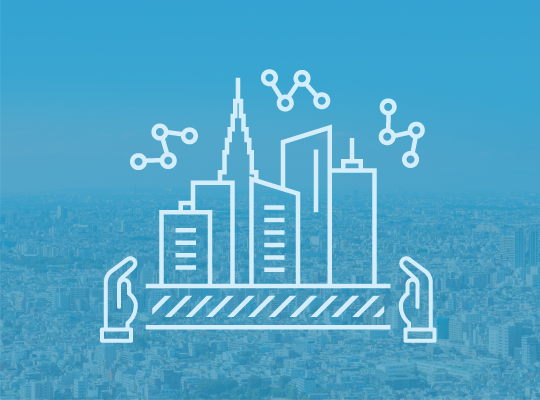
Urban infrastructures, including roads, water works, and sewers, are aging, and maintenance and management has become a challenge for local governments particularly under severe financial constraints. Keeping in mind that the problems faced by local governments, such as the decline in population and lack of social security, is on the rise, this research aims to propose manner to maintain and manage infrastructures based on daily life.
In addition to its conventional purpose, the infrastructure that supports daily living also adds value to several aspects of the residents’ lives.
For example, measures such as determining the width and steps in sidewalks, to make it easier for the elderly and people with disabilities to go out are implemented during infrastructure maintenance and management. Another example is the maintenance of the rainwater collection and adjustment reservoir as a place of recreation. The target of this theme is to add new value to conventional infrastructure maintenance and management, to improve community living standards, and to discover the ensuing effects.
The circumstances of the local governments should be accurately grasped and optimal measures commensurate should be devised with the financial constraints to create value associated with infrastructure in this manner. Focusing on management based on the data available in Society 5.0, we undertake research to visualize and quantify methods to grasp the problems of the community and value creation around infrastructure, utilizing the data on infrastructure management.
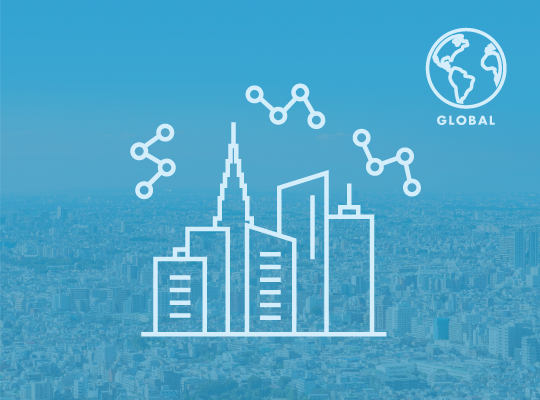
The main theme of this research is to accelerate collaboration with global sites by sharing with them the concept and vision, methodology, technology, and practical knowledge related to Society 5.0-type smart cities, which have been explored across the multi-pronged themes studied at the H-UTokyo Lab in Phase 1 starting from 2017 and in Phase 2 starting from 2020. The key concepts of Society 5.0, namely, “people-centric society,” “balancing economic advancement with the resolution of social problems,” and “merging cyberspace and physical space” need to be considered against the backdrop of a multitude of issues, such as declining birth rate and aging population, increasing social security costs, increasing risk of large scale disasters, and aging of infrastructure. Such a contemporary urban situation is not only in Japan but also in many other countries. Based on the practical work undertaken and the results obtained thus far, the H-UTokyo Lab will build a network of practitioners and leaders of smart cities worldwide, along with professional experts. The H-UTokyo Lab will also enhance the sharing of knowledge and frameworks for building a common foundation as a global standard.
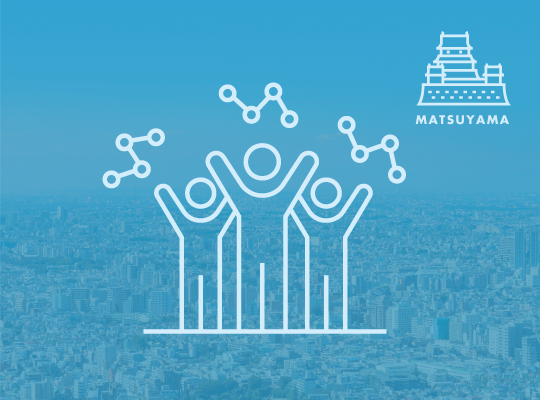
We will establish a data-driven urban planning method for local revitalization. Initiatives will be undertaken in cooperation with related agencies such as Matsuyama City and Urban Design Center Matsuyama to support evidence-based urban development in Matsuyama city. These initiatives include the continued collection and enhancement of behavior data using City Probe that has been developed and studied in Phase 1, realization of the city data platform (City Data-Spa) that aggregates the diverse data, reinforcement of data-driven city activity simulation (City Sim), and functionality improvement of City Scope, which is a tool to visualize the results. In doing this, we will explore measures for the social problems brought about by the Covid-19 pandemic and study other important themes for future local societies such as for transportation, decarbonization, tourism promotion, and pre-disaster improvement planning.
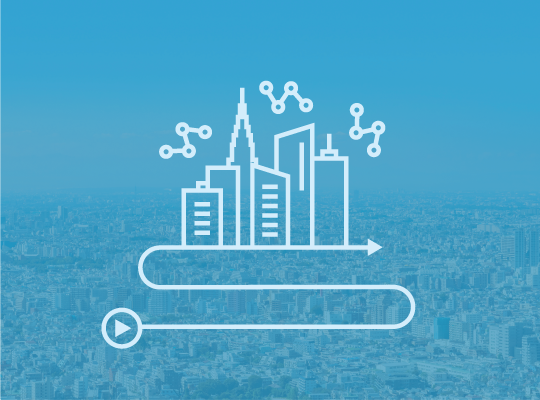
Currently, implementation plans for smart cities are being rolled out worldwide. The smart cities are diverse depending on the social background of each city . For example, some cities promote the efficient use of energy, while some cities improve efficiency and completeness using unmanned and AI-supported urban services.
Then how are the desirable smart cities for Society 5.0?. At the H-UTokyo Lab, in Phase 1 during 2017 through 2019, the key terms related to Society 5.0-type smart cities, namely, “people-centric,” “value-creation oriented,” “merging cyberspace and physical space,” “data-driven urban planning,” and “symbiotic autonomous decentralized city” were deliberated in depth.
The theme of this sub working group is design of processes to realize Society 5.0-type smart cities by appropriately incorporating these key concepts. Accordingly, assuming that such smart cities are to be pursued, we study the processes using backcasting from the future to the current state. We plan to share the results with a wide range of stakeholders, including the practitioners in the field.
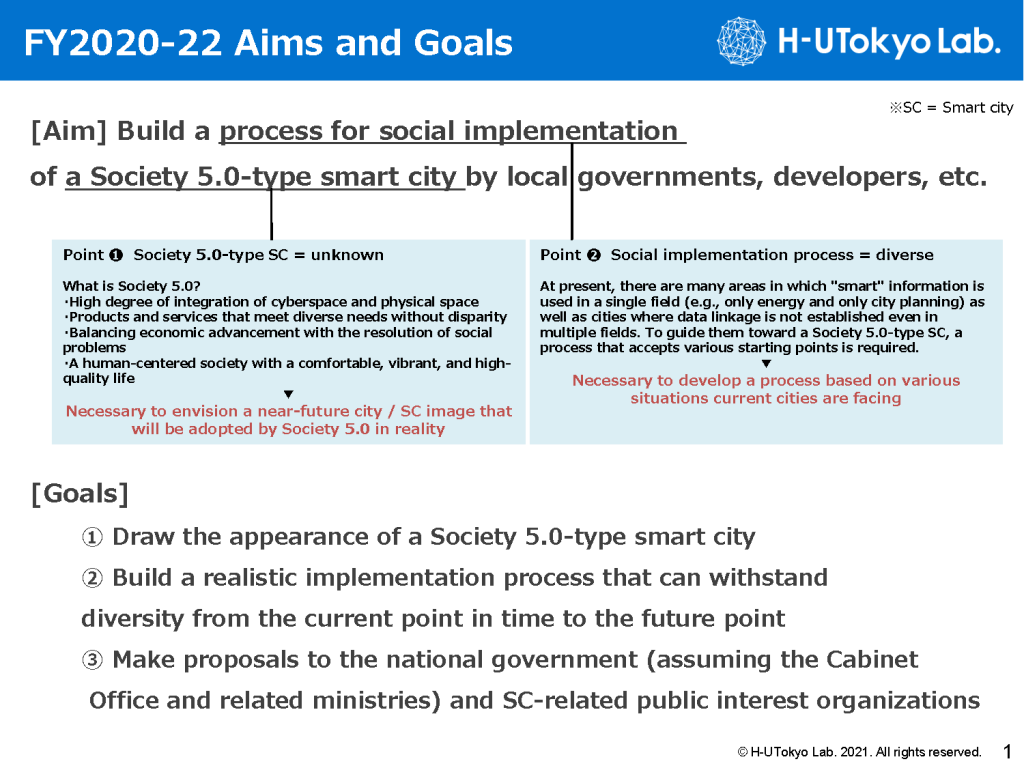
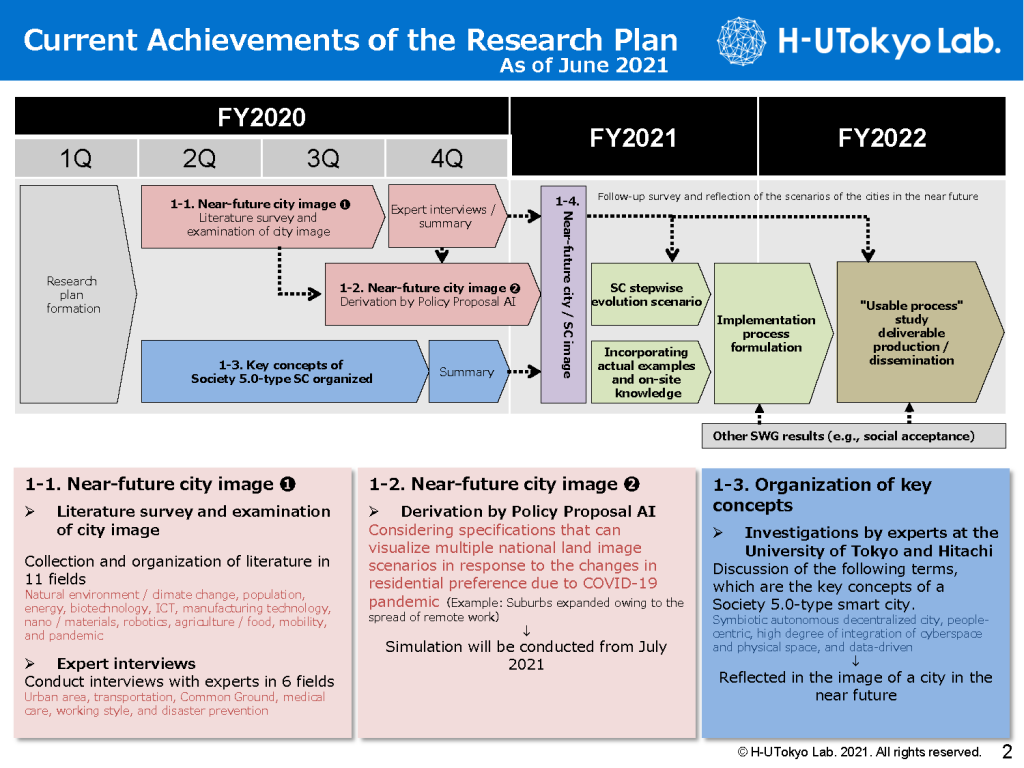
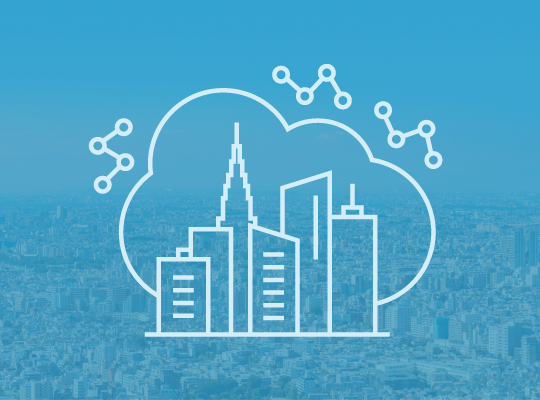
The utilization of data is considered to be one of the foundational elements of Society 5.0-type smart cities; however, in conventional smart city research, business models for widespread utilization of available data to create urban services have not been adequately studied. Accordingly, based on the newly introduced concept of value flow in this research, we will define the industrial structures and business models that will enable the data on smart cities to be continually used in the future as social infrastructure, such as electric power and water supply.
Smart city data infrastructure comprises of sensors, data maintenance and management, processing, and services. Business operators in various fields participate in such initiatives on an experimental basis, for creating and operating urban services. However, to ensure data infrastructure to be sustainable, orchestration is vitally important where the respective business operators should work together while sustaining their own businesses and considering the value flow of the entire data infrastructure. The results of this research are expected to provide important guidelines for formulating rules and procedures for the orchestration.
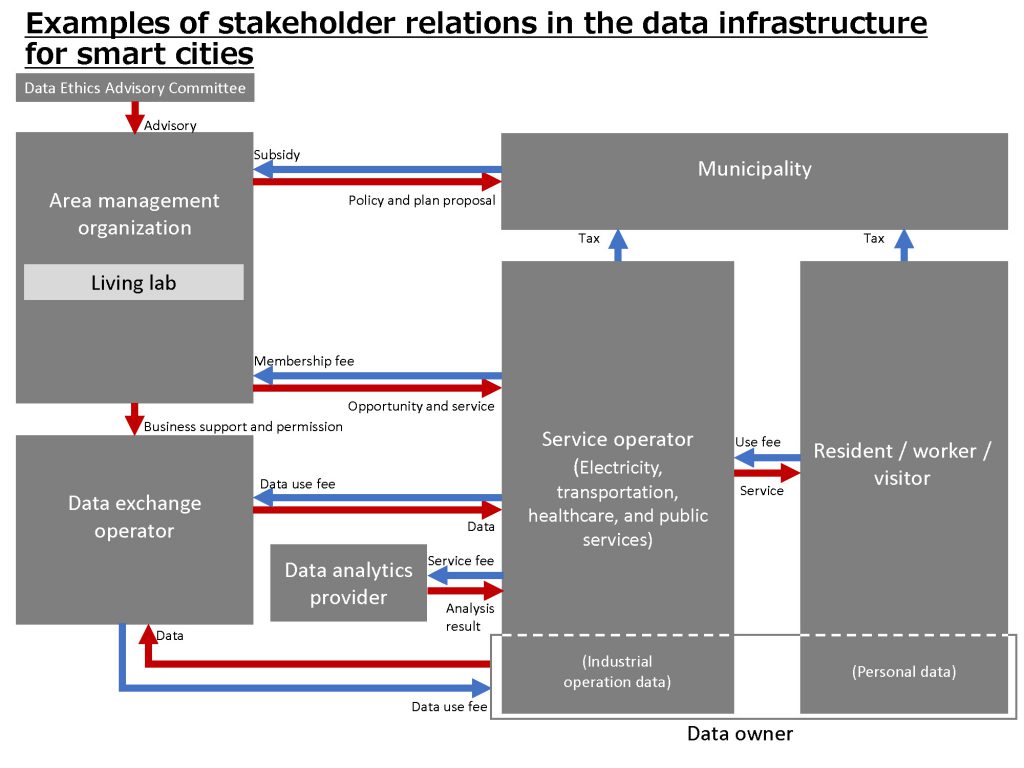
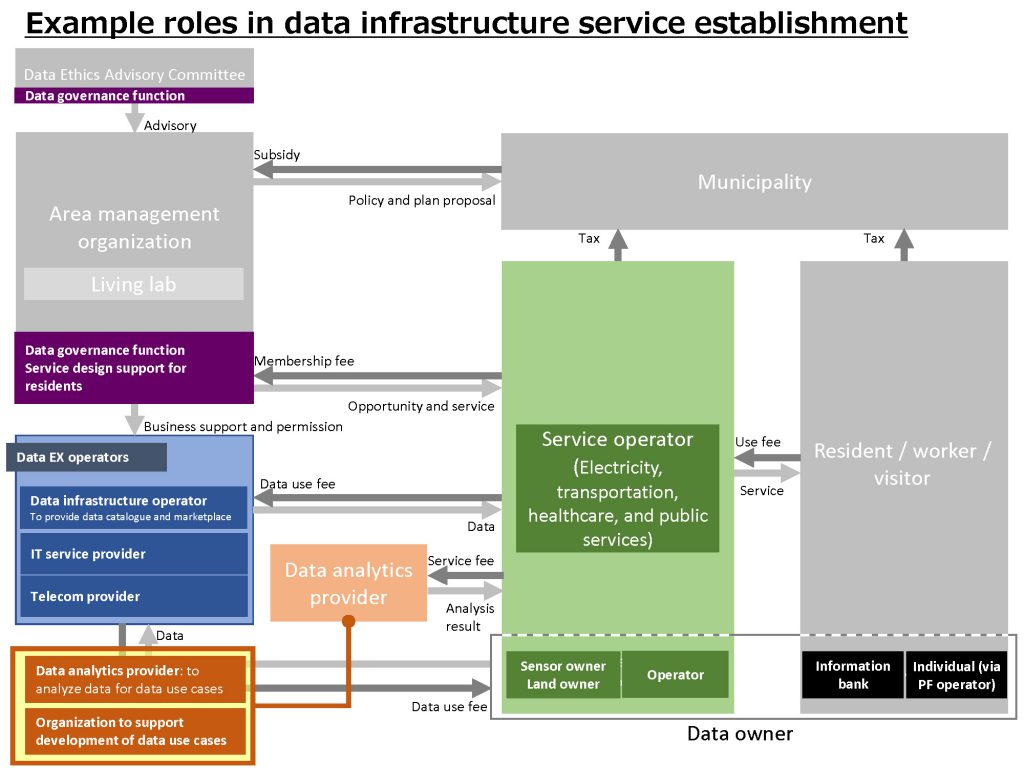

Driven by the modern shift from quantity to quality, the concept of Quality of Life (QoL) has been proposed as an indicator to assess “health” not just in the physical sense, but also other qualities of daily living including mental disposition, social connection, and surrounding environment. In this research, the concept is extended to urban planning to assess urban development and operations by quantitatively estimating the QoL of people living in smart cities.
Conventionally, the area and the amount of distributed green spaces and commercial facilities, have been used as general-purpose measures to evaluate cities. These appropriate values are derived from the average values for all the people concerned, and it is not often rightly correlated to the satisfaction of people living there. The aim of this research is to develop and practically utilize a tool that can monitor the daily living and satisfaction of each city resident, and a new urban evaluation metric based on such observations. This is then expected to be used as essential feedback for the development of a smart city, which tends to be technology-biased, such that it is an all-inclusive city closely supporting the daily living of diverse groups of people.

In the field of smart cities, there are several aspects that have not been considered in a collaborative manner thus far; such as urban planning and information technology, design and data analytics/simulation, urban management and social implementation. For the smart cities envisioned in the coming Society 5.0 era, there is an urgent need to develop human resources capable of utilizing their existing professional expertise in the realm of smart cities. Moreover, developing a network of professionals with diverse expertise to enable effective cooperation through adaptive collaboration depending on the situation is also crucial. This working group will build a programme to develop human resources and promote networking.
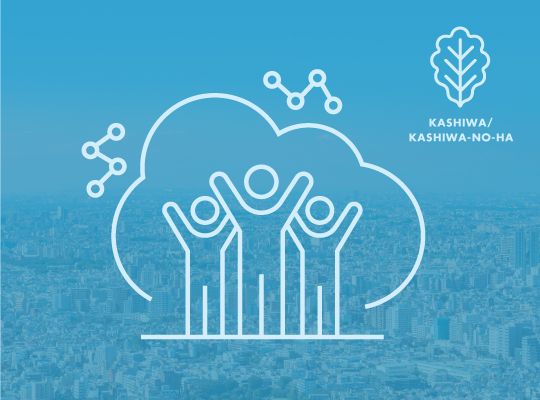
In the Kashiwa-no-ha project, urban development has thus far been rolled out through developer-centered close collaboration among public, private, and academic institutions. Moreover, starting from 2019, initiatives have been undertaken to realize smart cities characterized by concepts such as “energy,” “mobility,” “public space,” and “wellness.” Cross-utilizing the data accumulated through such initiatives, work is underway to build a “data platform” to develop even better services.
However, while initiatives were undertaken with close collaboration among public, private, and academic institutions, the participation of the residents in planning and co-creation has been inadequate. This has brought to light the importance of desirable locations and situations for urban open innovation involving diverse stakeholders including the residents and arranging the methods for sustainable operations.
This initiative will focus on data platforms that will be the foundation for smart cities and will develop, through actual use in practice, the methods for residents’ participation to realize people-centric data utilization and service creation. While participating in the site for co-creation (living lab) with residents, which is promoted by the Kashiwa-no-ha smart city initiative, we will also realize social implementation that is rooted in the community.
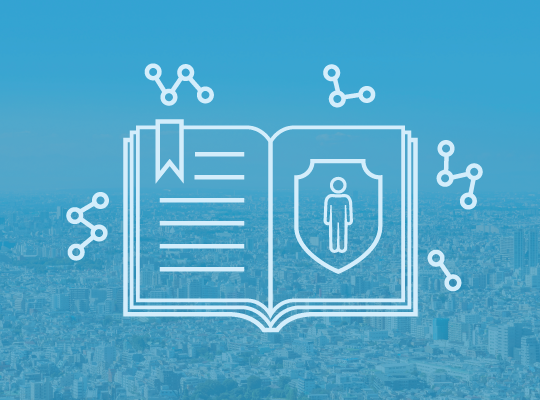
With the use of data and AI, which are at the core of smart city functions, new governance models, such as privacy and AI ethics, are necessary in addition to compliance with personal information protection law. Simultaneously, embedding these governance systems in the design of services will increase their social acceptability. This study examines the ideal method of data utilization in smart cities based on the trends of the legal system with regard to personal information protection and privacy protection in Japan and overseas. It also presents research on the formulation of guidelines based on specific use cases. Additionally, the study provides an evaluation of the ideal method for the development of data rules in Japan and overseas, with regard to smart cities in general, and research toward the recommendations of the same.

Present-day smart cities not only utilize data on the natural environment and device operations, but also data on individual (resident) attributes and behavior. As such, urban services are expected to be developed by comprehensively considering human activity. However, it may also lead to social resistance toward the collection of personal information, and raise ethical issues about how to collect and use such information, which have often resulted in litigation overseas.
Thus, a crucial theme in the social implementation of smart cities is that the community understands and accepts the technology (social acceptance). However, this social acceptance is considered to be strongly associated with the characteristics, historical background, and historical features of the community, and hence there is no universal silver bullet. Accordingly, we work to accumulate knowledge that contributes to the improvement of social acceptance, by thoroughly verifying past cases, testing its validity in the field, and exploring the processes and factors of social acceptance (or non-acceptance) of smart cities.














